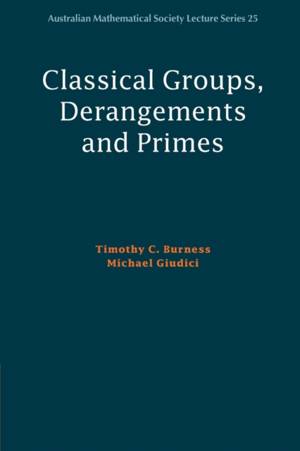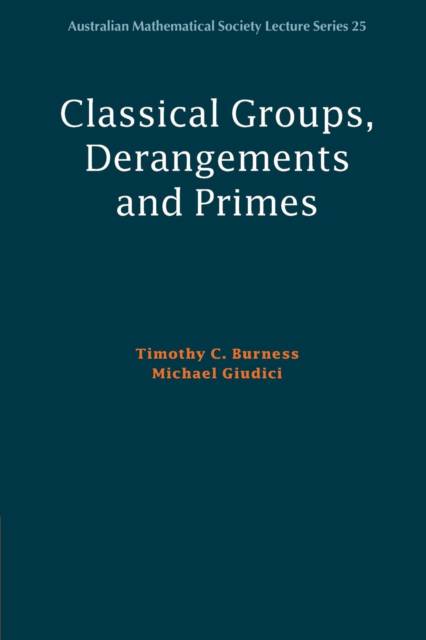
- Afhalen na 1 uur in een winkel met voorraad
- Gratis thuislevering in België vanaf € 30
- Ruim aanbod met 7 miljoen producten
- Afhalen na 1 uur in een winkel met voorraad
- Gratis thuislevering in België vanaf € 30
- Ruim aanbod met 7 miljoen producten
Zoeken
Omschrijving
A classical theorem of Jordan states that every finite transitive permutation group contains a derangement. This existence result has interesting and unexpected applications in many areas of mathematics, including graph theory, number theory and topology. Various generalisations have been studied in more recent years, with a particular focus on the existence of derangements with special properties. Written for academic researchers and postgraduate students working in related areas of algebra, this introduction to the finite classical groups features a comprehensive account of the conjugacy and geometry of elements of prime order. The development is tailored towards the study of derangements in finite primitive classical groups; the basic problem is to determine when such a group G contains a derangement of prime order r, for each prime divisor r of the degree of G. This involves a detailed analysis of the conjugacy classes and subgroup structure of the finite classical groups.
Specificaties
Betrokkenen
- Auteur(s):
- Uitgeverij:
Inhoud
- Aantal bladzijden:
- 366
- Taal:
- Engels
- Reeks:
- Reeksnummer:
- nr. 25
Eigenschappen
- Productcode (EAN):
- 9781107629448
- Verschijningsdatum:
- 15/01/2016
- Uitvoering:
- Paperback
- Formaat:
- Trade paperback (VS)
- Afmetingen:
- 152 mm x 229 mm
- Gewicht:
- 535 g

Alleen bij Standaard Boekhandel
+ 216 punten op je klantenkaart van Standaard Boekhandel
Beoordelingen
We publiceren alleen reviews die voldoen aan de voorwaarden voor reviews. Bekijk onze voorwaarden voor reviews.











